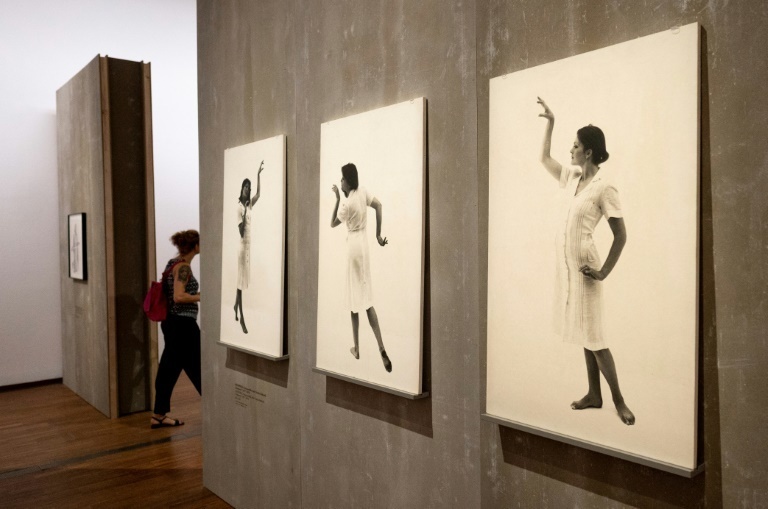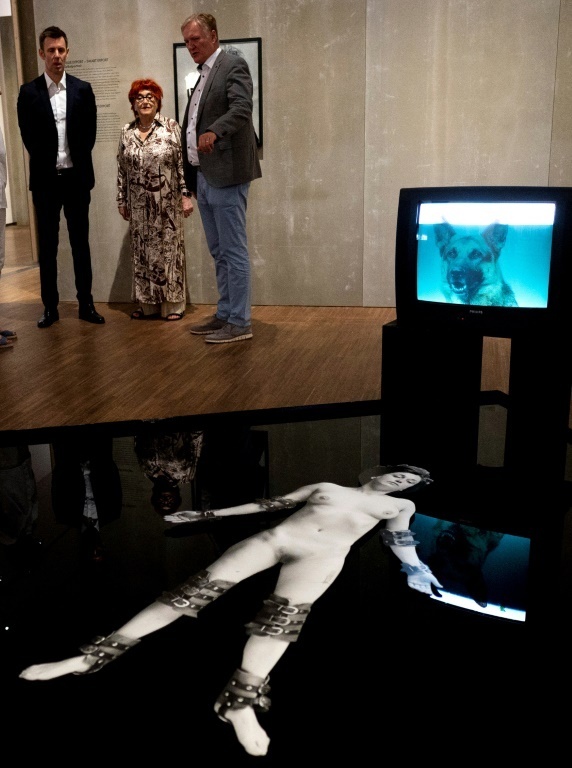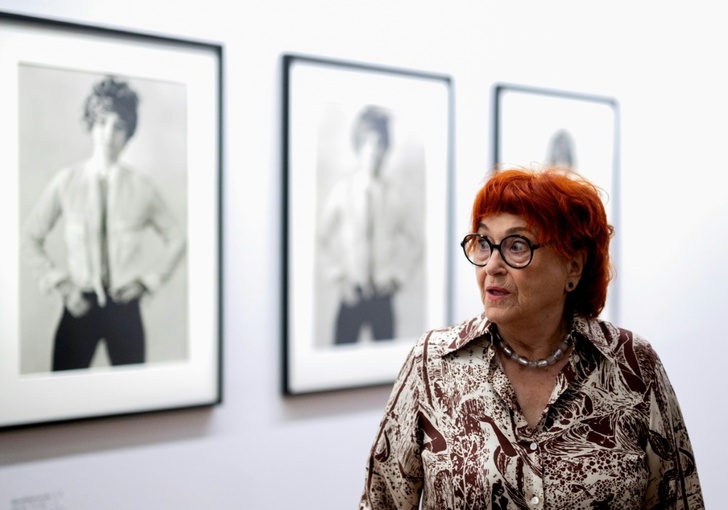Society has become so restrictive that police would now arrest her for public performances, provocative Austrian media artist Valie Export told AFP ahead of the opening of a retrospective in Vienna.
Best known for performances in public dating back to the late 1960s, 83-year-old Export's oeuvre spans photography, video, film, installations and sculpture.
The photography-focused show at the Albertina gallery, which opens Friday, is one of the biggest retrospectives of her work.
"Our society has become very restrictive, and it is becoming even more restrictive," she said in an interview, adding "it is a step backwards" compared to the 1970s.
If she were to perform in public again today, Export is "convinced that the police would immediately come and arrest me".
"You are no longer allowed to do anything in the public space other than walking, standing, looking".

Back in the late 1960s, those who witnessed Export's bare-breasted "Touch and tap cinema" in several European cities were mainly "curious", she said.
But Export also had some haters, who sent her poisonous mail, threats and dragged her to court for alleged indecency.
"Everything is so uncertain" these days, she said, due to a world that keeps changing rapidly and in unexpected ways, including geopolitically.
"We really live in a very difficult time now," she said, expressing her fear that people had "lost direction". But they still needed to "take on these challenges", she added.
The show in Vienna, which runs until October 1, features over 160 works created between the late 1960s and the late 1990s, some of them showcased for the first time.
- Catholic church and Nazi past -
Born Waltraud Lehner and raised by a single mother in postwar Austria, a staunchly Catholic nation struggling to come to terms with its Nazi past, Export's "performative expression" would be shaped by her upbringing.
Educated in a convent school in Linz, Export said she has always been fascinated by the ceremonies and rituals she saw during church service.

Export's earliest works were feminist and focussed on the female body, themes that dominate much of her work. The female body, she argues, has been regulated by societal norms for centuries.
Defying conservative Austria, her works were never intended to "shock" but were rather thought-provoking "acts of protest" against prevailing attitudes in society.
However, feminism is "far from" where it should be, even though important steps towards equality and the recognition of women have been made, said Export.
The "oppression of women has lasted for centuries, millennia," so it won't be possible to bring about social change within "50 or 100 years", she said.
Export and Maria Lassnig were the first women to represent Austria at the Venice Biennial in 1980.
kym/jza/jj/ach
© Agence France-Presse
Your content is great. However, if any of the content contained herein violates any rights of yours, including those of copyright, please contact us immediately by e-mail at media[@]kissrpr.com.
Source: Story.KISSPR.com

